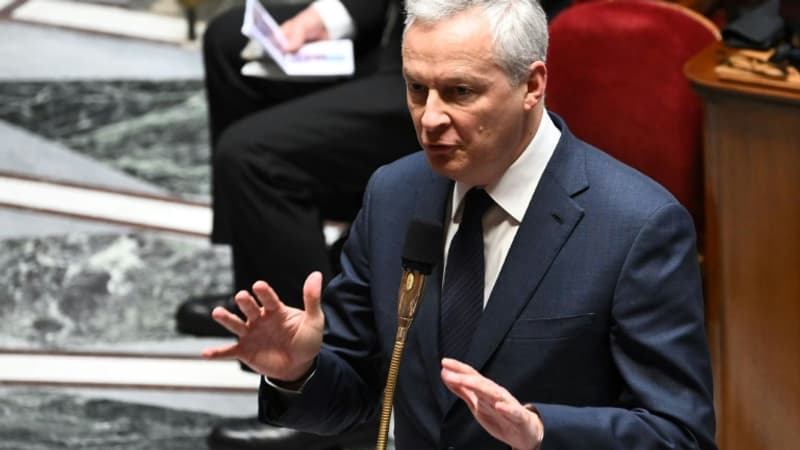The worst is never certain. Last summer, Bercy sent to Brussels its “stability program” for the next five years. Considered too optimistic by some, the executive’s scenario predicted a slight improvement in both the level of the public deficit and the debt by 2022. The first was to go from 6.4% to 5% of GDP and the second from 112.5 to 111.9% thanks, in particular, to growth expected at the time of 2.5% and an improvement on the employment front.
Nine months later, INSEE discovers that Bercy was finally more cautious than optimistic. Indeed, the annual balance of public accounts reveals at least three good surprises for the executive: a deficit of 4.7% of GDP, a debt of 111.6% and… a record level of mandatory rates of 45, 3%.
More than 1,400,000 million euros in taxes, fees and social security contributions
Because this improvement in the public accounts, a little faster than expected, is precisely due to the exceptional levels of taxes and fees paid to the tax administrations and to the social security contributions affected by Urssaf. This may seem paradoxical.
Bruno Le Maire, the Minister of Economy and Finance regularly proclaims his refusal to raise taxes. And yet, taxpayers, households and companies, will never have paid so much in a single year: more than 1.4 billion euros in taxes, fees and social security contributions.
There are two main explanations for this record: the increase in corporate profits has also benefited the tax authorities and the improvement in the labor market has resulted in a growing number of employees and therefore of social security taxpayers and taxpayers subject to the tax. on the rent and at the maximum rate of the CSG.
Debt interest rises almost 40%
However, these three pieces of good news – for those who manage the public accounts – are largely offset by the great fact of the moment: the free money is over. To finance its deficit, which remains colossal, France borrows massively and increasingly expensive.
Already in 2022 the debt burden (which costs it the interest on all its loans) has experienced a strong rebound (+39.7%), going, according to INSEE, from 38,100 to 53,200 million euros. And this year, the bill promises to be even higher. Every time interest rates rise by one point, France must pay an additional 17 billion euros.
In other words, even with taxes that attract more and more French people to work, only a reduction in spending will significantly reduce France’s deficit and debt, as the government has committed to… this summer.
Source: BFM TV


